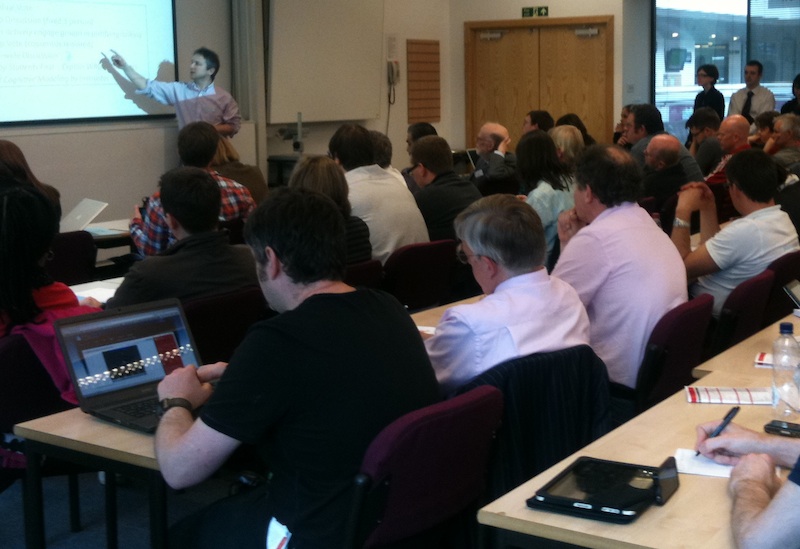Following up my presentations in 2007 at Naace in Feltham ‘The Importance of Computing as a Specialist Subject in Schools‘ and in 2010 at Computing@School in Birmingham ‘Computing at School‘, I am hosting a table at Collabor8 4 Change at BETT 2012 this year .
Titled ‘Conceptual framework for computing‘ it is planned to be a discussion of how we can be clearer about the nature of the computing subject at primary and secondary level and in particular how we can know better the continuity and progression for learners.
My challenge, in the context of computing and ICT is:
- I believe we need to find out what knowledge children can attain at which age
- I suggest we could do mass practitioner research to answer that question
- What’s wrong with this proposition?
Here are the few slides to kick off the discussion – I shall add an update to this post when we have had it!
UPDATE 13/1/2012 after attending:
The two sessions went well, with interesting feedback. For most participants, there were more important issues at the level of teacher competence, school organisation and the government’s upheaval of ICT and Computing, which deserved more debate time. On the other hand few felt that I was wrong!
I enjoyed Kathryn Day’s session, ‘ ICT vs Computer Programming curriculum ‘ which usefully contrasted the many documents that inform (or confuse) the practitioner when planning.
I also attended Chris Ratcliffe’s session ‘ How much should pupils be, or feel, in charge of their work? ‘ which clarified some of the barriers to further responsibility being transferred to pupils, whilst agreeing it as a good thing.
Finally I joined Steve Philip for his session ‘Curating the past is more important than creating the future’ in which he proposed the term ‘curativity’ – the act of curating the avalanche of creative work made possible in schools with digital tools through selection, deletion, categorisation and preservation/presentation for an audience. Highly relevant to the National Archive of Educational Computing!
Well done to all the presenters & participants and to the organisers: Penny Patterson, Dave Smith and Terry Freedman and to compère Russel Prue – the round tables format has a lot to recommend it, with more time for exchange in contrast to the more theatrical Teachmeet.



